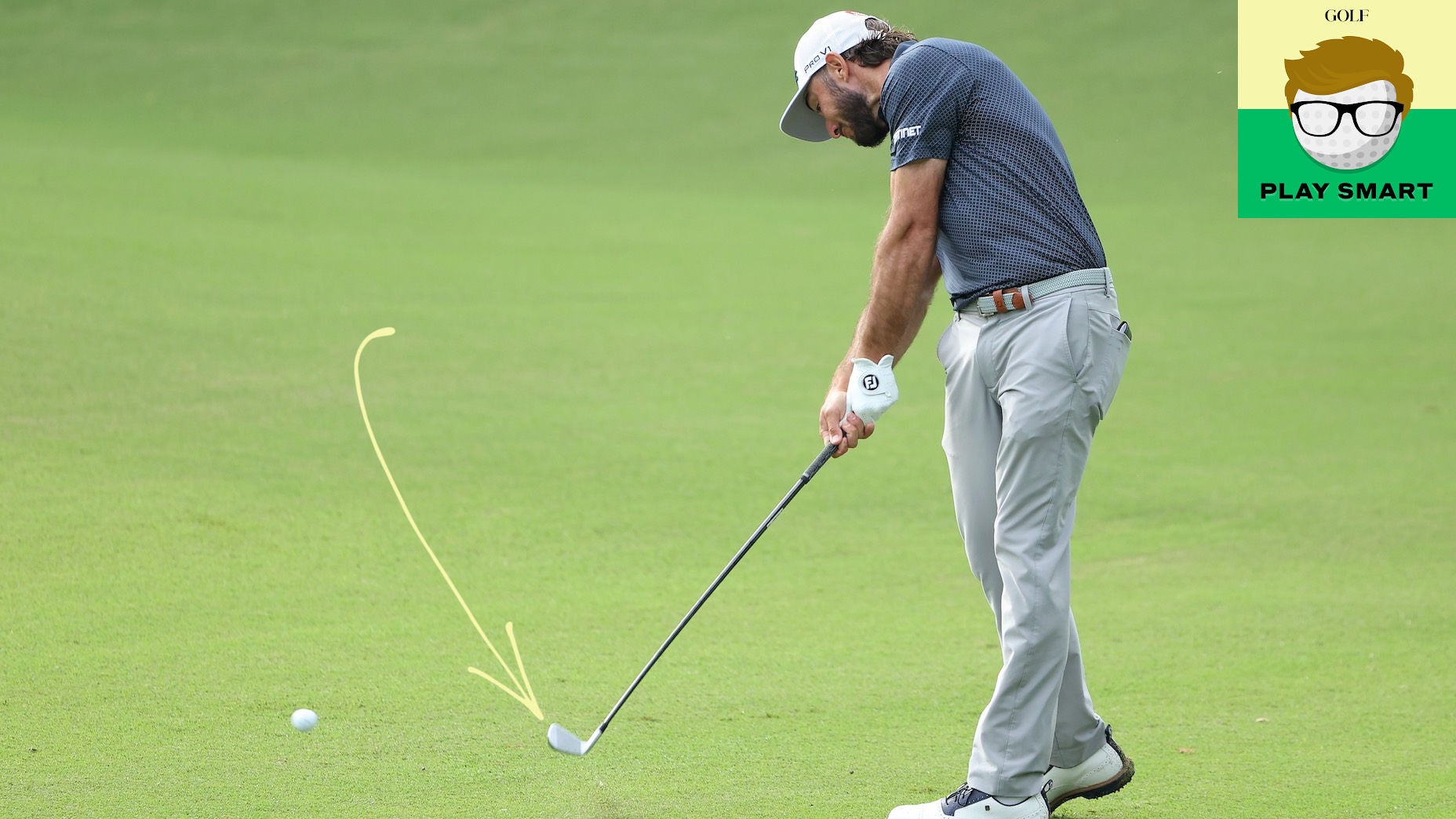Welcome to Play Smart, a game-improvement column that drops every Monday, Wednesday and Friday from Game Improvement Editor Luke Kerr-Dineen (who you can follow on Twitter right here).
In a special edition of Play Smart, GOLF & ADP have partnered to uncover how the best players in the world prepare for the biggest events and how it can help you play smarter, better golf.
TULSA, Okla. — It’s obvious from the first moment players step on property: The wind is gusting on Friday at Southern Hills. Pleasant, scoreable rounds are usually fairly frequent at the PGA Championship. Today is not one of them.
For players, and their coaches, the breezy conditions add a dose of intensity to the work they do on the range before they hit the course. There’s a lot to do, and not much much time to do it.
Max Homa, who comes into the second round even par and inside the top 30, doesn’t want to waste time. Instead, he opts for a more surgical approach.
“I probably hit balls for about 25 minutes,” he says. “But I know what I need to do.”
Homa says his day starts with some low intensity mobilization work in the gym, focusing on getting his key golf muscles activated, followed by a hearty breakfast. When he gets to the range he’ll link up with his coach, GOLF Top 100 Teacher Mark Blackburn, and get to work.
Homa says he starts small, with chip shots with his highest-lofted clubs, with the swings growing steadily longer.
“The first thing I’ll do is hit about a dozen wedges to get moving,” he says. “The last thing I’ll do is hit a few pitching wedges, to get my first full swings in.”
After that, Homa says he moves into the meat of his range session: 7-irons, which is the club he uses to check on every shot he may need to call on during his round: Low, high, right-to-left and left-to-right.
“I spend the most time hitting 7-irons, because that’s what I practice hitting all my different shots with,” he says. “I’ll go through all my shots, and because it’s the middle club in my bag, it gets me comfortable with each.”
He’ll throw in a few 5-irons along the way, he says, then turns to the two clubs he’ll use off the tee.
“I’ll practice hitting it low with my 3-wood…it varies a little bit on the course depending on how many I’ll try to hit low, but it’s a shot I’ll turn to when I need to find a fairway,” he says.
Something tells me Friday at the PGA will be a day he’ll need a few extra of those.
And then, moments before he’s due on the tee, he unleashes the big stick.
“Hitting a handful of drivers is the final thing I’ll do,” he says, with his coach keeping a watchful eye. “I’ve really gotten going at this point, but I don’t want to overdo it.”
Then he’s off: warmed up, with each of the boxes he needs checked off, as he prepares for the round ahead. It’ll be a tricky one at Southern Hills Friday, but it’ll all start with a few moments of smart work on the range, far away from the madness of a major championship.
As for what golfers at home can learn? That more isn’t necessarily better. Create a plan and stick to it. Make sure that plan includes hitting different kinds of shots, and build up to your driver slowly. Prepare pursuing quality, not quantity. You’ll be better off for it in the end,.
